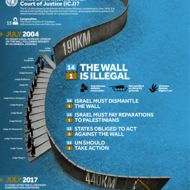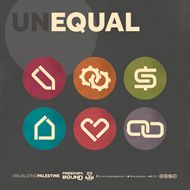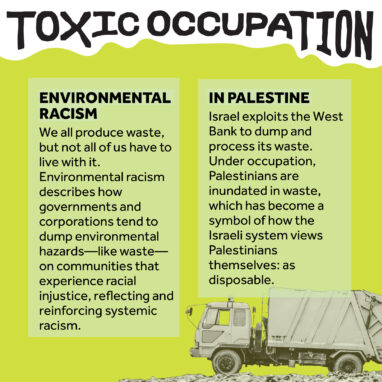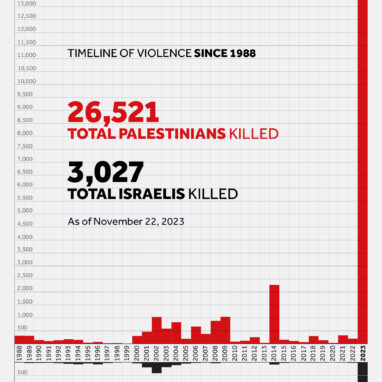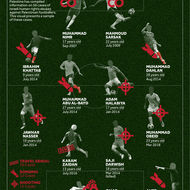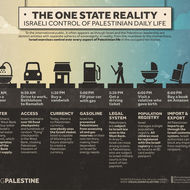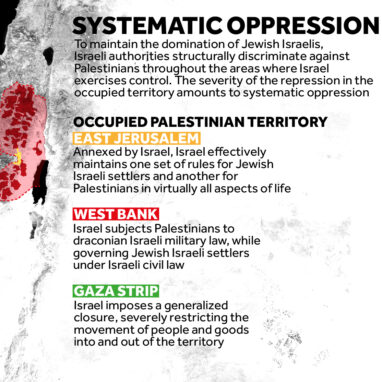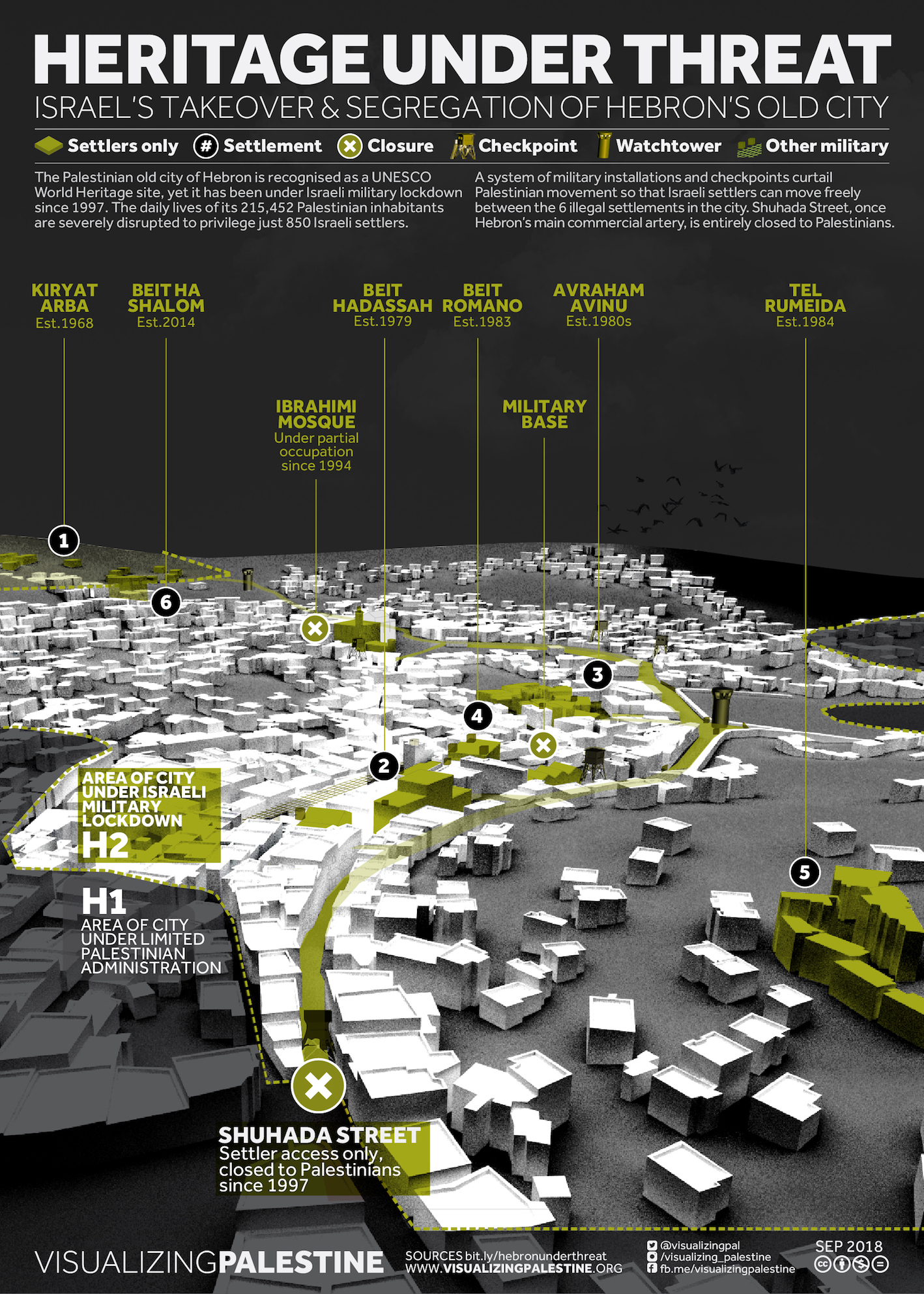
Heritage Under Threat
For centuries, Al-Khalil (Hebron) has been considered a holy city, primarily because of the Ibrahimi Mosque/The Tomb of the Patriarchs, which followers of Judaism, Islam, and Christianity consider a sacred site of pilgrimage. Today, Al-Khalil is an openly segregated city. The daily lives of its 215,000 Palestinian residents are severely disrupted to privilege just 850 hard-line Israeli settlers, enabled by hundreds of heavily armed Israeli soldiers.
Israeli settlements, closures, checkpoints, watchtowers, and other military exercises of control have transformed Al-Khalil into a city ridden with threats of violence and spatial fragmentation for Palestinians, restricting them from carrying on with their daily lives and accessing their shops, homes, heritage sites, and other belongings. Al-Shuhada Street, previously at the heart of Al-Khalil’s commercial center, is the most striking example of this. Al-Shuhada street has been closed to Palestinians since 1997, and accessible exclusively by settlers.
In 2017, UNESCO recognized the old city of Al-Khalil as a World Heritage site, but also placed it on the “in danger” list, recognizing the threats it faces under Israel’s occupation, and allowing for funds and attention to be given to the protection of the site.
This visual highlights how Israel’s takeover and segregation of Al-Khalil excludes Palestinians and erases the multireligious fabric of the city.
Language
Sources & Data
https://bit.ly/hebronunderthreat
The development of the map was based on the project (or interactive platform) “Mapping Hebron’s apartheid”.
RELATED VISUALS
Where Law Stands on the Wall
VP Unequal
Visualizing Palestine 101
Toxic Occupation
Timeline of Violence-October 2023
The Team that Could Have Been
The One State Reality
Systematic Oppression
CONTRIBUTE
Help us continue to create free and accessible visual resources for the Palestinian solidarity movement.
